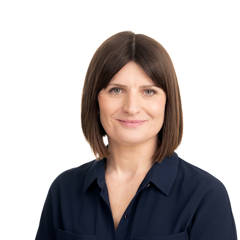08/07/2019
We have long celebrated the rich cultural mix that is Yorkshire, and the recently launched inaugural Yorkshire Sculpture International (YSI) festival is another great example.
The festival is a celebration of the region’s cultural influence, being the birthplace of many prominent sculptors, such as Barbara Hepworth and Henry Moore. The free 100-day event includes many specially commissioned new sculptures from prominent names such as Damien Hirst, as well as works that have involved local communities across Leeds and Wakefield. If the festival is the success it’s hoped to be, it could become an annual event and form part of Leeds 2023, the city’s international cultural festival that is now only a few years away.
Such events are important and to be welcomed, not only because of their own intrinsic artistic or cultural value but because they help to create a sense of place that increases community identity and shared experience. Crucially too, they can be important boosters to local economies generating new revenues for local authorities and businesses alike.
The development of YSI has drawn on Yorkshire’s already rich history and reputation as the birthplace of pioneering sculptors and has used this to distinguish the region as the ‘sculptor capital of Europe’. Yorkshire is already home to the Yorkshire Sculpture Park, based in Wakefield, as well as established art galleries, particularly within Leeds.
Building on this heritage, the festival will engage with local communities – and visitors from much further afield – to develop and reinforce a sense of place. The stronger a sense of place is, the stronger also its sense of community.
But there is a financial argument too: cultural events and festivals can generate tourism and economic benefits for local authorities at a time when budgets are exceptionally challenging. Authorities have suffered real-terms government funding cuts of over 50% since 2010-11 according to the National Audit Office at a time when demand for services remains as strong as ever. Finding ways of generating new revenues is an imperative for many.
We only need to look at the experience of another great Yorkshire city, Hull, to see the benefits that cultural events can bring. Hull was named the UK City of Culture in 2017, following a bid for the title led by Hull City Council, and since then has experienced impressive economic and social growth as a direct result.
Last year the University of Hull released an evaluation of the impact on the city. It found that tourism in 2017 was on track to generate £300m to the economy. Nearly two thirds of the businesses that reported making an investment during the year said it was of higher value as a result of UK City of Culture and 72% made this investment sooner than planned.
These investments will have benefited the local authority in terms of higher business rates, increased licensing income, and higher revenues for things such as parking due to increased visitor numbers and activity in the city.
There were also significant community and wellbeing benefits: three quarters of Hull residents stated they were proud to live in Hull and over 75% said that their knowledge and understanding of what their city had to offer through its heritage and history had increased.
A recent report from Core Cities, Cultural Cities Enquiry, recognised the importance of smart investment through cultural activities and recommended that cities focus on bringing together like-minded people and institutions to establish city-wide plans to bring in higher levels of investment – what they call the Cultural City Compact. Such compacts would include the development of corporate social venture funds, enterprise development partnerships and a focus on attaining available tax reliefs. It also recommended extending the debate about local tourist taxes.
At a time when local authorities continue to operate under financial pressure, maximising the value and impact of local cultural events and heritage makes sense on many levels.
Leeds 2023 will put the city and region in the cultural spotlight on an international scale and emphasise the importance of developing an area’s heritage and culture. By implementing a sound place-making strategy and building on the assets and heritage of the region, it could be a catalyst for growth in the region and solidify Yorkshire and the city’s cultural identity.
Meanwhile, we hope that Yorkshire Sculpture International will generate engagement and support from individuals and communities around the region, playing its part in stimulating the local economy and rewarding Leeds and Wakefield councils for their progressive approach.


